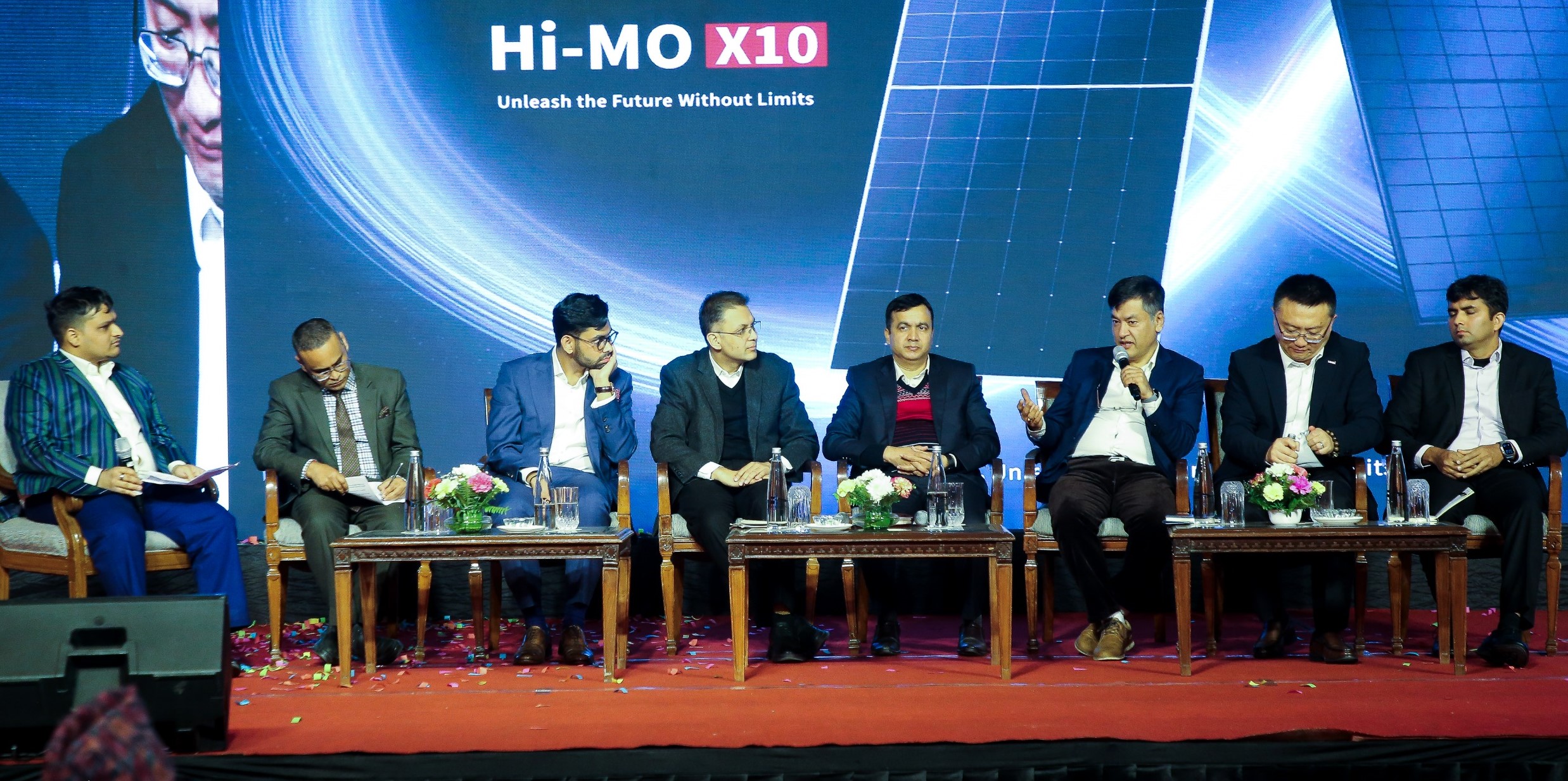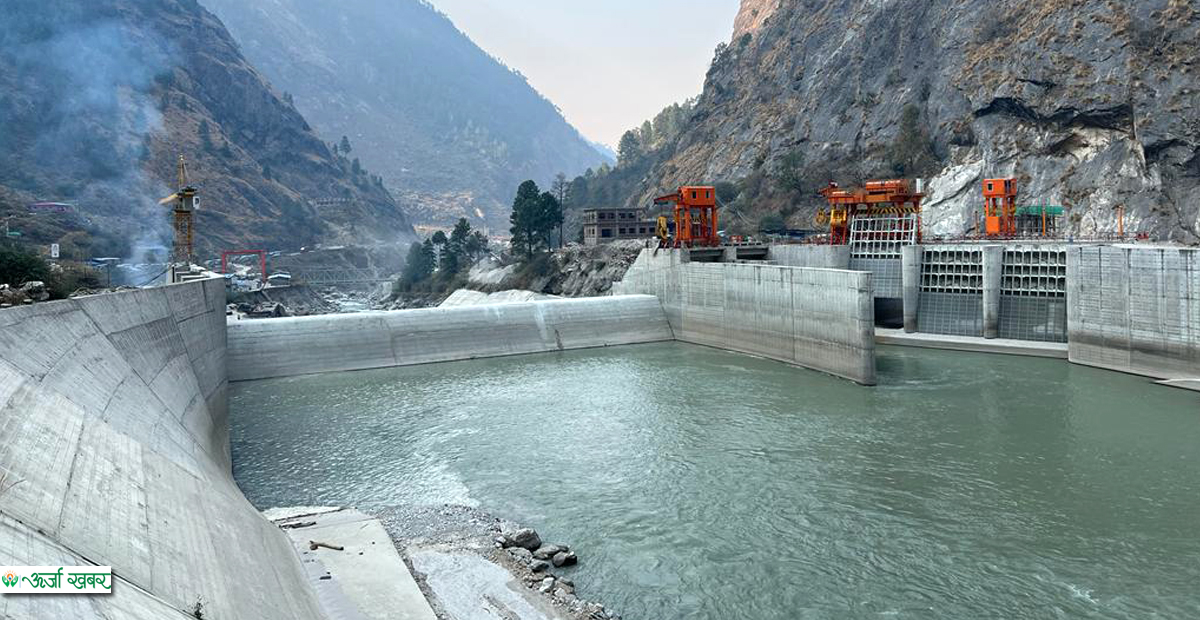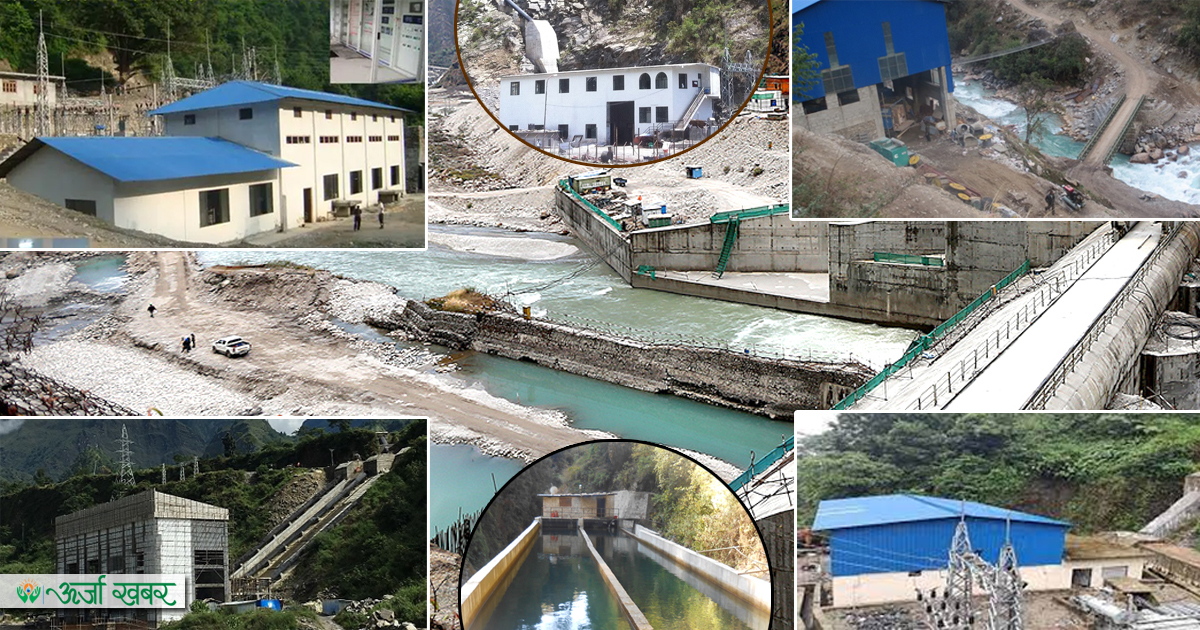Energy Update
"Releasing the Bali Statement" concluded by the "World Hydropower Congress, 2023"
Believing that Nepal's hydropower sector will be the next destination for foreign direct investment
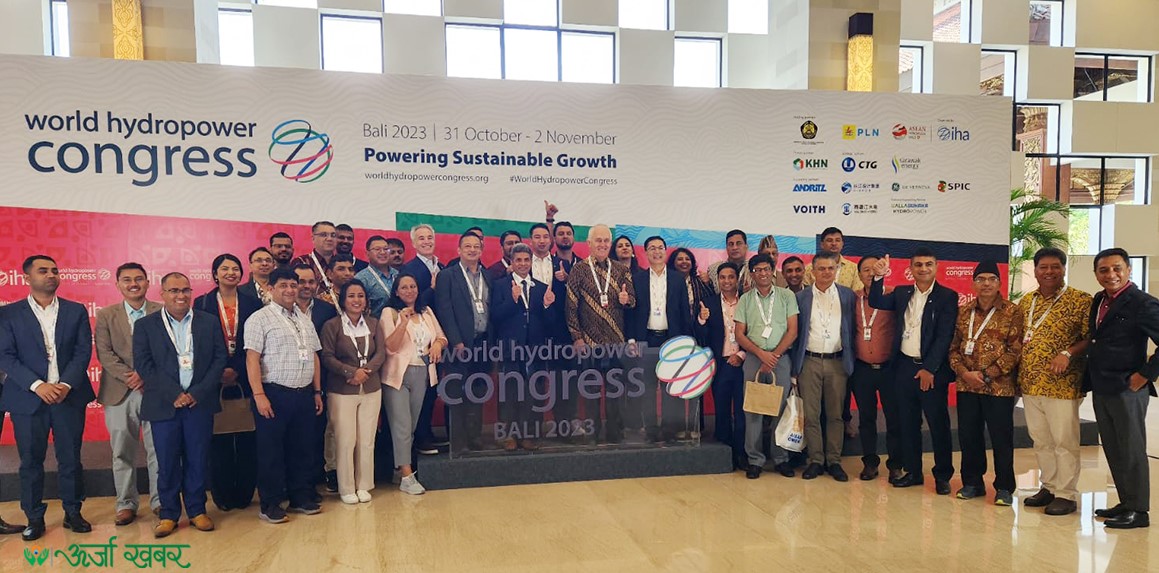
Bali (Indonesia); The 'World Hydropower Congress, 2023', which was organized for three-days with the theme of 'Powering Sustainable Growth', has been concluded with grandeur. The congress which kicks off on Tuesday organized by International Hydropower Association (IHA) was concluded on Thursday.
The three-days gathering that incorporated around 900 participants from Asia, South East Asia, Europe, America, China, Africa and other countries, concluded with the release of the 'Bali Statement'. And, it focused that the world called for water, wind and sun to power the sustainable growth of the future together, ahead of COP28.

The statement emphasized the need for sustainable hydropower development to build a reliable, prosperous and low-carbon economy through clean, green and renewable energy. Referring to the fact that hydropower is the world's largest renewable resource for energy production and storage, the statement points out that it will strengthen the world's economy through advanced industrial development. It is mentioned that it will play a vital role in the proper utilization and management of water resources.
Since most of the remaining hydropower capacity to be underutilized is in developing countries, the Bali Statement has called for expanding investment in those countries. As past's industrial revolution was also driven by water, the statement is able to transform future sustainable development with electricity produced from water, wind and sun. It is believed that this will help to bring policy makers and developers from all over the world together.

As the world’s largest source of renewable energy generation and storage, hydropower has underpinned industrial development in many of the world’s most advanced economies, while also strengthening holistic water management. Most of the untapped hydropower potential that still remains to harness today is in developing regions. The Bali Statement in this regard urges for more changes and investments to harness the untapped energy potential.
The participants also sought to breaking down barriers to the development of renewable energy by advancing policy and investment-driven solutions, demonstrating the importance of renewable technologies to facilitate the shift away from coal, highlighting the immense untapped hydropower potential that exists in many regions of the world, particularly Asia and Africa, as well as business and networking opportunities for industry.
At the closing ceremony, Indonesia's Minister of Energy and Mineral Resources, Arifin Tasrif, said that this conference has flown a message to the nations of the world that hydropower is indispensable to reach the goal of zero carbon emissions. "Hydropower has become a strong means to move forward in the journey of sustainable development while avoiding the effects of climate change that is increasing in the world," he said, "This will also greatly help Indonesia's target of reaching zero carbon emissions by 2060."
Same that, Nani Hendiarti, Minister of State for Maritime Affairs and Investment Coordination of Indonesia, said that this conference will be helpful to achieving the country's National Determination commitment. "We have a potential of 95,000 megawatts of hydropower generation, but so far only a small amount has been harnessed," she said, "We are confident that the Bali Statement will develop a low-carbon economy through hydropower development."
Speaking at the closing session, Former Prime Minister of Australia and IHA President Malcolm Turnbull said the energy transition will not be possible without sustainable hydropower as the backbone of future energy systems. “The congress has conveyed a message to the world that renewable energy development is necessary, while it is a time to bring revolution in clean energy development.”
After the ceremony, Director of Nepal Electricity Authority Prabal Adhikari gave short remarks that the congress conveyed the message that Nepal's hydropower sector is an attractive destination for foreign investment. "During the congress, it was found that they are enthusiastic about investing in Nepal from the discussions held with the representatives and developers of various countries," he said, "Thus, we can be confident that Nepal's journey to transition to clean energy will be facilitated."
At the same time, the newly elected Vice President of IHA and the Chief Executive Officer of Bizbell Energy Pvt. Ltd. Sushil Pokharel said that it has succeeded in providing sufficient information to international investors regarding the status of hydropower development of Nepal. "We have succeeded in conveying the message to all stakeholders including foreign policy makers, investors, contractors, consultants, that there is a positive environment for the investment in Nepal," he told Urja Khabar after conclude the program. It has also shown the inevitability of the government and the private sector working together in Nepal.
Yudo Dwinanda Priaadi, director general of New Renewable Energy and Energy Conservation, Ministry of Energy and Mineral Resources, Government of Indonesia said “The Bali Statement sends a clear message to governments and financial leaders around the world that hydropower must be a part of the solution to grow economics sustainably while decarbonizing our industries and ensuring we stay on track with global climate goals.”
Giving the short remarks of the program, Nepal Hydro Power Association (NHA) President Arun Rajauria said that Nepal's work and efforts in sustainable and renewable energy development have been successful in bringing it to the international stage. "There should be an environment for such international congress to be held in Nepal, now we are ready to prepare for it," he said.
On the other hand, IPPAN Vice President Anand Chaudhary said that the message that Nepal's hydropower development is not only an option for reducing carbon emissions, but also responsible for our environmental protection. "Now we have to rapidly increase our hydropower development capacity," he said. IPPAN will also continue to work towards this.
On behalf of Government of Nepal, Navin Raj Singh, joint secretary of the Ministry of Energy, Water Resources and Irrigation presented a paper like multiple utilization of the water and its future and that Bhanu Pokharel presented Nepal's hydropower development and contribution of the private sector.
Among the people participating in the congress on behalf of the Nepal are Chief Executive Officer Arjun Kumar Gautam of Hydro Electricity Investment and Development Company Limited (HIDCL), Nasib Man Singh Pradhan director of Nepal Authority Electricity, Development of Electricity Department and the Chief Executive Officer Dr. Netra Gyawali of Rastriya Prasaran Grid Company was there.
Similarly, more than 40 people including Ganesh Prasad Neupane of Urja Developers, Sreejesh Ghimire, Chief Investment Officer of NMB Bank Limited and Dinesh Dulal, Head of Sustainable Banking, Manohar Shrestha, Chief Executive Officer of Hydro Consult Pvt Ltd, Kavita Kandel, Secretary of IPPAN, Kaji Lama, Executive Director of Hydro empire Pvt Ltd were present.
The key message of the Bali Statement is to ensure necessary collaboration includes planning for future energy needs through identifying the most optimal overall mix of low carbon renewable energy technologies to enable sustainable development.
Likewise, incentivizing sustainable hydropower development through financial and market-based mechanisms, accelerating development of renewable energy through transparent and efficient permitting and licensing processes and incorporating hydropower sustainability practices into government regulation and financial sector obligations are among the most necessary measures underlined in the mega gathering.
Conversation
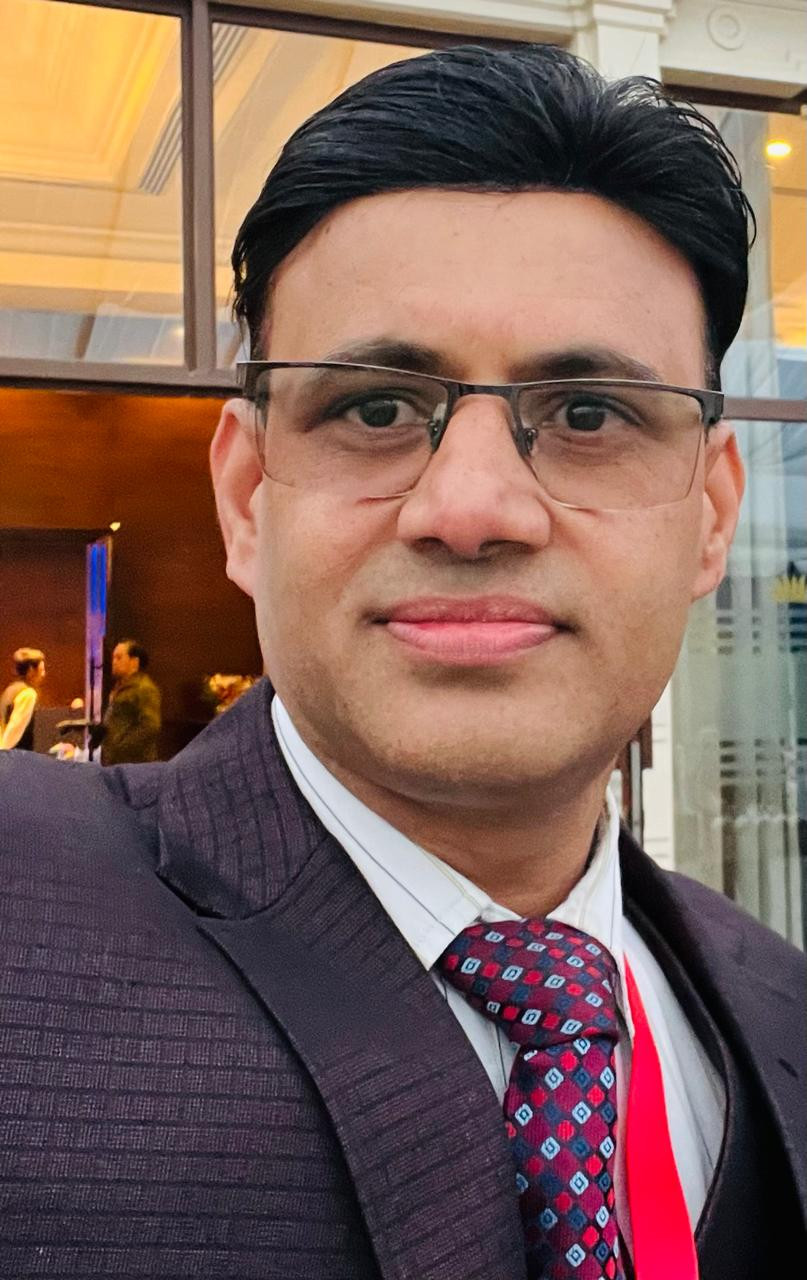
Laxman Biyogi
Laxman Biyogi has been serving as the editor of Urja Khabar for the past seven years.
- Info. Dept. Reg. No. : 254/073/74
- Telephone : +977-1-5321303
- Email : [email protected]









